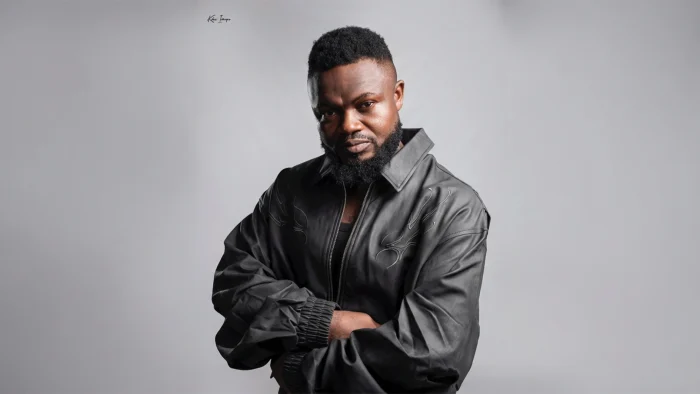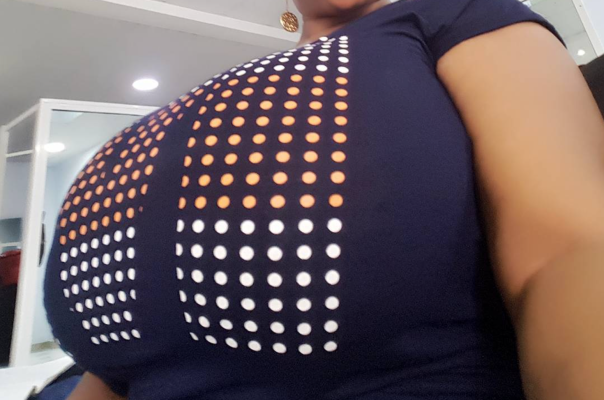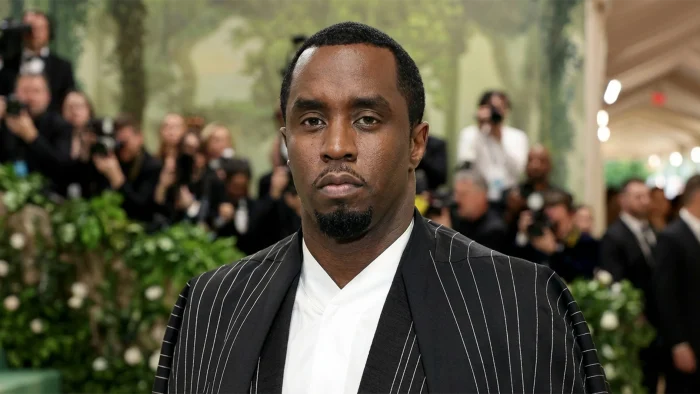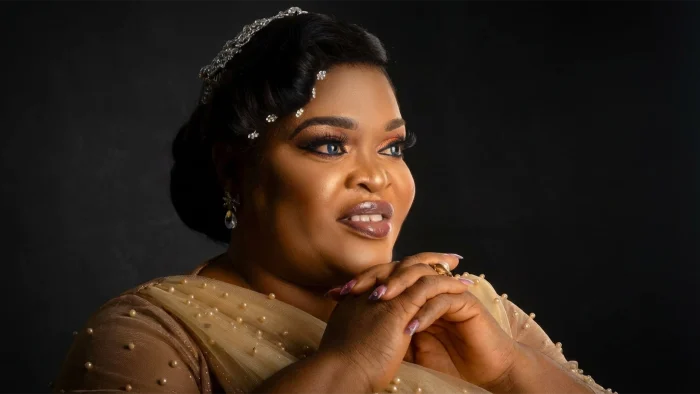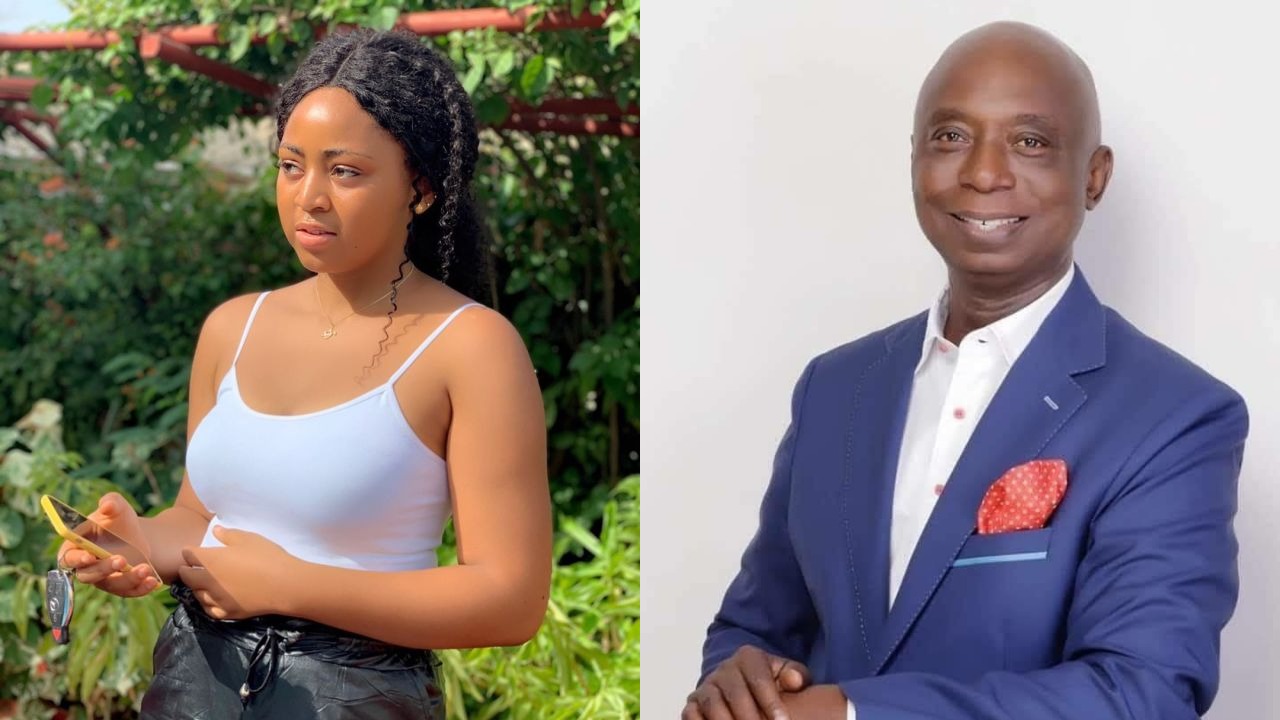Guchi’s rise to fame shows her talent and resilience. From her viral hits like Addicted to the chart-topping Jennifer, the 27-year-old pop star has left her mark on the Afrobeats scene. With her unique blend of dancehall and pop, Guchi has earned accolades, including nominations from The Headies and AFRIMA. Her latest release, No Touching, marks another step in her mission to create music that sparks joy and inspires. We dive deep into her world, uncovering the struggles that shaped her journey and the resilience that fuels her success.
[ad]
PULL QUOTES
“I want to create music that makes people dance and forget their sorrows.” — Guchi
“The pressure isn’t about going viral; it’s about making timeless music.” — Guchi
“Music is my life; even when I’m not recording, I’m still creating.” — Guchi
“I found my sound by listening to myself, over and over.” — Guchi
“The industry’s pressure fades, but my love for music grows.” — Guchi
Guchi’s ascent among the new school of female pop stars in the Nigerian music scene has been marked with successes since her pandemic-era debut. With a series of hits, which also went viral on social media—2019’s Addicted, to 2021’s Jennifer and Benzema, and 2022’s Speedometer—she quickly became a familiar voice among Afrobeats lovers.
[ad]
Born Ugochi Onuoha, Guchi’s love for the colour purple equally spotlights her artistry, especially after her 2022 sophomore extended play, Purple Diary, which showcased her romantic lyricism and vocal prowess. Her fusion of dancehall and pop also earned her nods from the All Africa Music Awards and The Headies, signalling her rise across the Afrobeats scene.
After a brief hiatus to douse off the pressure of maintaining her streak of hits, the 27-year-old songbird has made a comeback with her just-released record, No Touching, which is already a radio hit across the country. Signed to PG Records, Guchi has built a dance-heavy and love-themed catalogue, placing her as one of the few female pop stars with consecutive hits.
READ ALSO: Afrobeats not the only African sound – Tyla
She’s bright-eyed as she sits down with Guardian Life, taking us on a tour inside her sonic world, reminiscing on her rocky start; being influenced by Michael Jackson, and Osita Osadebe; navigating the pressures of social media fame on her artistic freedom; how sexual harassment from a church member and early resistance from her family pushed her into the secular pop scene; and her mission to spread joy with her music.
[ad]
When did you decide to do music?
From the age of seven, I was singing in a church choir, but then I started recording in the studio when I was 16 years old. I officially dropped my first song in 2019 and signed to PJ Records.
Who were your biggest music influences?
I grew up listening to Michael Jackson, Beyonce, and Rihanna. My dad is a huge lover of music. He likes cleaning the house. So, whenever he’s cleaning the house, he plays Michael Jackson, Osadebe, Bob Marley and the like. So, I grew up listening to those people, and my dad inspired the kind of music I listen to.
How did you hone your style?
I think I was listening to myself for a while. At first, I was sounding like different people, the people that I loved. But then I had to take it upon myself to find my sound. And so I was listening to myself. I would record myself, and then I’d listen to myself over and over again until I was able to get my own sound. Whenever you listen to me, you’ll think you have heard it somewhere before, because I grew up listening to a lot of old-school music from my dad. So what’s unique about my sound is the nostalgia it brings. You just somehow get connected to it.
[ad]
How did your family react to you when you started making music?
I had a normal life like every other kid. I can’t say we were rich or poor. We were just comfortable. I grew up listening to music and going to church all the time, even if I don’t like going to church so much. I was going to church because I would have to sing in church, and I couldn’t wait for the next Sunday to sing. I was going for rehearsals and all. I grew up in the very local part of Nigeria, in Zauda, a small village in Abuja. Everybody knows everybody. You know that kind of area where if you do anything, they’re going to report you to your mom. And so when I started, my mom didn’t approve of me singing.
READ ALSO: Portable hails Ice Prince as ‘number one’ in music industry
I started with gospel music because of how much I love music and I needed support from my aunties. My aunt’s husband was a pastor. My aunties are very religious and, because I wanted support from them, I started with gospel music. I would send them the song and nobody would say anything about it. Nobody was encouraging me. And then, I decided to do secular music, and it was like the world was against me. Give your life to Christ was what everybody was saying to me. You’re no longer coming to church.
I actually stopped coming to church because of somebody. There was this guy that I really respected in the main headquarters of our church. Whenever I went to church, the choir in this headquarters was amazing. And he was always their leader. He was the one directing everyone, and I was so inspired. Until one day I was coming back from work at midnight and then I met him on the road. He saw me, picked me up, and we got talking. And then I played him my song, a gospel song that I recorded, and I was so happy because it felt like a celebrity picked me up. I was already texting some of our church members to tell them about it. I told him how much I could not wait to learn. And then we exchanged phone numbers. I was the most excited person on earth that day.
[ad]
When I got back home and turned on my data connection, I just got so many messages from him saying, ‘Oh, you have hot legs. You’re so sexy. When am I going to see you? In short, right now, I’m having an erection,’ and so on. It was so disgusting. I felt so disappointed. That was part of the reason I stopped going to church.
I stopped going to the choir; because it wasn’t just him. Whenever we were rehearsing, the pastor’s daughter would say, ‘Sing like one boy is touching you.’ I was disappointed because the people I looked up to were something else. And then I started doing secular music. My mom was against the job and me. When I go out to perform and come back, I would see her waiting for me by the door, and she would use her shoe to beat the daylight out of me. But the funny thing was no matter how much she hit me, the next day I still went out to perform again. That was when I became this wayward child.
READ ALSO: Daughter of Africa knocking down stereotypes
My mom finally started supporting me when I went to this show. At first, she didn’t let me, until my friends came and begged. She was saying, ‘She’s a girl.’ She needs to focus on education and all. And when we went for this show, they paid me ₦30,000. When I got back, I gave my mom ₦15,000 for the first time. She was surprised that I could earn from making music. And then that was how I started going to more events and bringing money to her. She saw that I was not just doing music because I wanted to be irresponsible, but because I wanted a better life for her and I loved it so much. So right now, my mom is my biggest fan. She’s always like, ‘Hey, have you gone to shoot the video? Are you in the studio?’ And all of that.
[ad]
Tell us about your newest project, No Touching.
No Touching is a song that I recorded after a break I took. I wanted to be a better person. I was in my feelings, going through so much at that time. I wasn’t depressed. I was just trying to get to another point in my life, so I took a break. And after the break, I had a studio session. And we just started recording. And if you listen to the beginning of the song, you would know I was actually in my feelings. And then it somehow entered a love song. If I’m in my feelings, I want someone around me, to calm me down. If I tell you that I don’t want you to touch me, I don’t want no touching, I don’t want any of those things, would you still love me like that? That means I’m comfortable around you, but I don’t want any form of sexual interaction or whatever. I’m so comfortable around you, but let’s just keep it as love and nothing else.
Does going viral on social media a lot put any pressure on you to create when making music?
Yes, I have felt that pressure, but not anymore. Previously, I felt like this was what people loved, so I should try something like this again. And it worked. Sometimes, it works. But then I just realised that it’s not about what they would love because it would just really have a short lifespan. It’s not about going viral. I’m working on making good, timeless music with good lyrics and depth. It’s about the music having potential.
READ ALSO: Beyond fame and fortune: Why sports stars battle depression, poverty at career sunset
So, your hiatus was to rejuvenate yourself mentally?
I took a break to work on myself and to create music. I was not under any pressure of dropping music. So I was recording many kinds of music, Alte, Afro-pop, RnB. I tried everything. When you release music, you are under pressure. You need to push your song. You need to be emotionally sound. You need to give it time to focus on it.
[ad]
How do you generally create your music?
I like to be really comfortable around everyone around me; I need your energy and your vibe to be as modest or even higher than mine, if I must record where you are. If not, I’m telling someone to tell you to walk out. I want to be happy when creating music. It is not always easy for me to create music when I’m sad. I like to create music within an environment where everyone is feeling what I’m feeling. I like it when the energy is really good and right, and the environment is calm; then I can work.
When you are not making music, what do you typically find yourself doing?
My life is music because when I’m not making music I’m still making music or listening to music. Then I would end up saying, I like the way this person did this. And the next thing is, I take my laptop to record. So my life outside of music is still music somehow. But if it’s not music, then I’m just chilling at home with my family or friends.
Who are some of your colleagues in the industry that you’re looking forward to making music with?
Right now, the new industry is filled with a lot of talented people, and if I start mentioning them right now, I don’t think I will finish. I’m looking forward to working with a lot of them, like Omah Lay, Tems, Victony, Fave, Rema, and Wizkid.
READ ALSO: Music is growing the economy
What are you hoping to achieve in the long run?
I hope to keep creating music for people to just dance and forget their sorrows. I want it to stick in their head, for them to play it five years later and still love it.
Tell us a fun fact about you.
I know how to cook, and everybody who has tasted my food has said it’s really nice.
[ad]

